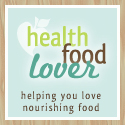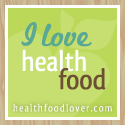What is Gluten Free January?
Much as the name implies, Gluten Free January by Matt Lentzner, is a month free from dietary gluten. It begins on the 1st of January 2011, however you may need to prepare a little before hand.
From the Gluten Free January site:
“[Gluten Free January] It’s a New Year’s resolution and a challenge diet all rolled into one. And it’s actually pretty simple.
Don’t eat any gluten for one month – in this case January, 2011.
When you’re ready to sign up just send a message to glutenfreejan@gmail.com with your first name, last initial, and town or city where you’re currently living”.
Why gluten free?
Why is gluten a problem for some people?
Gluten is found in many grains including wheat, rye, barley, triticale and oats.
According to the Better Health Channel, the part of gluten that causes problems in those with Coeliac Disease is the prolamine fraction. In different grains the prolamine fraction has different names; In Wheat the prolamine is called Gliadin; in Rye it is called Seaclin; In Barley it is called Hordein and in Oats, it is Avenin.
What problems can arise with consumption of gluten?
Who can have problems digesting gluten?
Those with Coeliac Disease; poor gut health and poor digestion.
What can you eat on a gluten-free diet?
What to avoid:
From Better Health Channel:
“A person with coeliac disease should avoid all foods that contain gluten. It is important to read the labels of all packaged or prepared foods. Some foods that may contain gluten include:
- Meat products any products prepared with breadcrumbs or batter, sausages and other processed meats or smallgoods (unless labelled gluten free), thickened soups, meat pies and frozen meals.
- Dairy products malted milk, some cheese spreads, icecream in a cone and some soymilks.
- Fruits and vegetables canned and sauced vegetables, textured vegetable protein (found in some vegetarian products) and fruit-pie filling.
- Cereal and baking products wheat, wheaten corn flour, semolina, couscous, wheat bran, barley, oats, porridge, breakfast cereals containing wheat, rye, oats or barley, corn or rice cereals containing malt extract, some icing sugar mixtures and baking powder.
- Pasta and noodles spaghetti, pasta, lasagne, gnocchi, hokkein noodles, soba noodles and two-minute noodles.
- Bread, cakes and biscuits all bread, cakes and biscuits prepared with flours from a gluten source.
- Condiments malt vinegar, some mustards, relishes, pickles, salad dressings, sauces, gravy and yeast extracts.
- Snacks liquorice, some lollies and chocolates, packet savoury snacks and some flavoured potato and corn chips.
- Drinks cereal coffee substitutes, milk drink powders.
- Alcoholic drinks beer, stout, ale, guinness and lager (most beers contain gluten; however, a range of gluten free boutique beers is now available in Australia).”
Sure you’re giving up gluten, gluten-containing foods and grains, but don’t despair. There are many gluten and grain-free options out there for those with Coelicas and gluten-sensitivity.
You can still eat:
- Fruit- all kinds (best: seasonal, local fruit)
- Meat- all kinds (best: if it’s minimally processed and organic and or/grassfed/free-range, where possible)
- Vegetables- all kinds.
- Fish
- Eggs- (best: from pasture-fed chickens and/or organic)
- Dairy- (best: whole milk, organic and from grass-fed cows) i.e.yoghurt with live cultures, whole milk, cream, cheese etc.
- Tubers- such as potatoes, sweet potato, parnsip, swede etc.
- Coconut- all kinds- coconut flour, oil, milk, cream etc.
- Nuts and seeds.
- Legumes- such as red lentils, puy lentils, french lentils etc.
- Beans
- Fermented foods- yoghurt, saukeraut, cheese, fermented veggies, kombucha, milk kefir, water kefir etc.
- Sea vegetables & sea weeds
- Rice
- Quinoa
- Amaranth
- Buckwheat- buckwheat ‘grains’, buckwheat noodles
- Corn (organic is best)
Gluten Free January also offers diets for those who find a gluten-free diet quite accessible and they would like to try another style of gluten free diet:
But really you need to listen to your body. Not every one reacts the same way to every food, so see what works for you and work with it!
Disclaimer: Please refer to your primary health care practitioner before making any health or diet-related changes. This blog is not meant to diagnose or treat anything and this blog is for informational purposes only.

















{ 7 comments… read them below or add one }
Michelle,
Really nice writeup.
All the best,
Matt
Thanks Matt.
Great challenge Michelle – good luck!
I personally feel so much better keeping gluten out of my diet and find it easy to make delicious substitutions. I’m sure it won’t be too much of a trial for you with your current diet and amazing, creative recipes!
Thanks Katey! I’ll be sure to post more gluten free recipes soon too!
Hi ‘chelle! Happy New Year! Hope all is well with you and you are enjoying your summer! I am considering doing this and have cut back tremendously on gluten products, but I really should just try it flat out. I have been getting heartburn at some meals and the only ingredient that I can find that these meals have in common is wheat as in pasta, flour tortillas or bread. I think I will eliminate those for a month and see how I feel. There certainly is a whole lot of other stuff you can eat isnt there? Big hugs! Alex
Hey Lex! Happy new year to you as well! Thanks our summer is great; really hot a the moment (32.6°C/ 90.6 °F)! Hope your winter is wonderful as well. It’s definitely a great idea to try it! Try it and see how your body feels! It could possibly be wheat that is contributing to heart burn, though it could be other factors as well. Yeah there definitely is a whole food-world out there besides gluten-containing products! Take care Alex!
Thanks for your info on gluten-free diets. Most of the recipes on my site are gluten-free also.
{ 1 trackback }